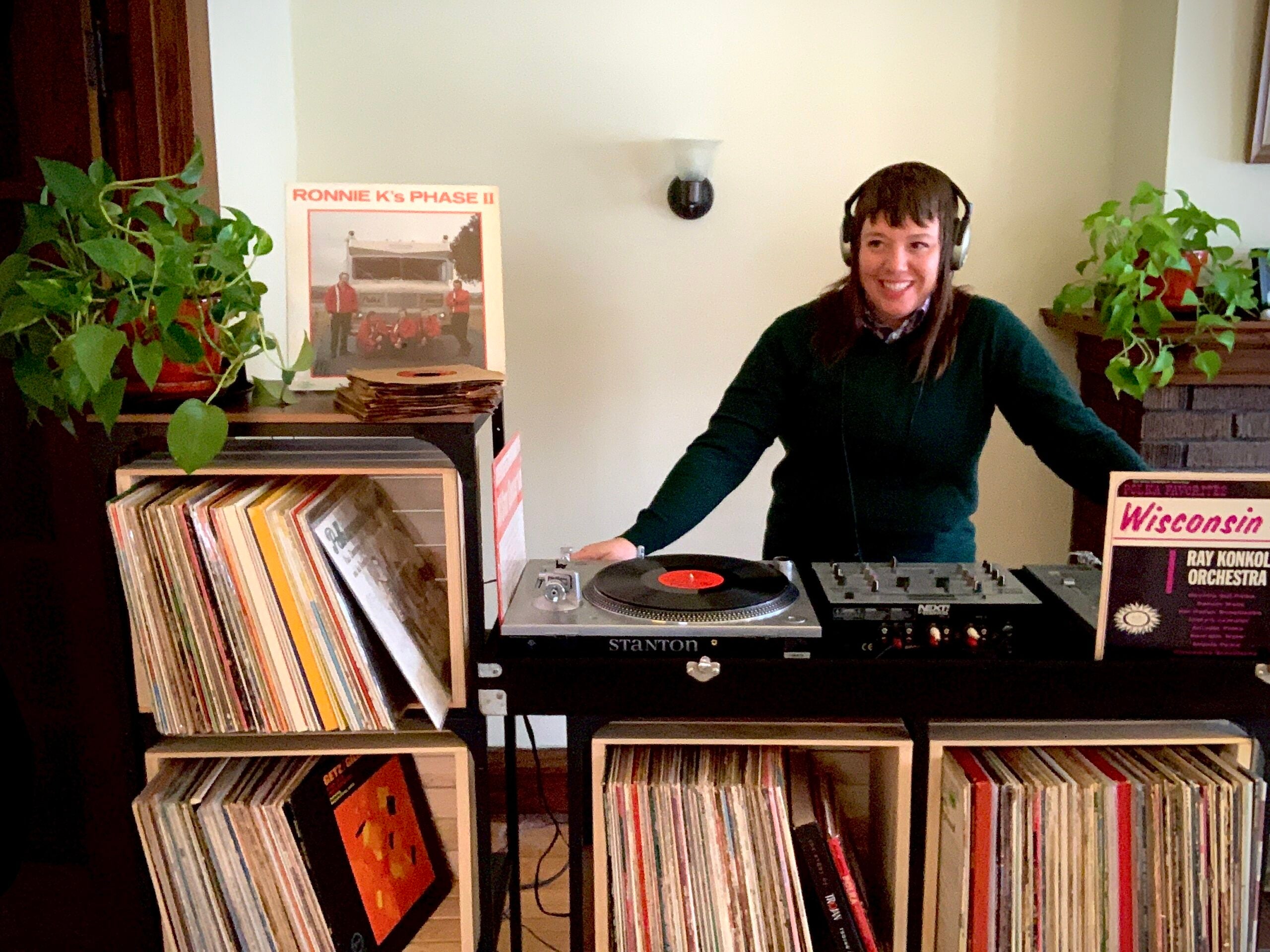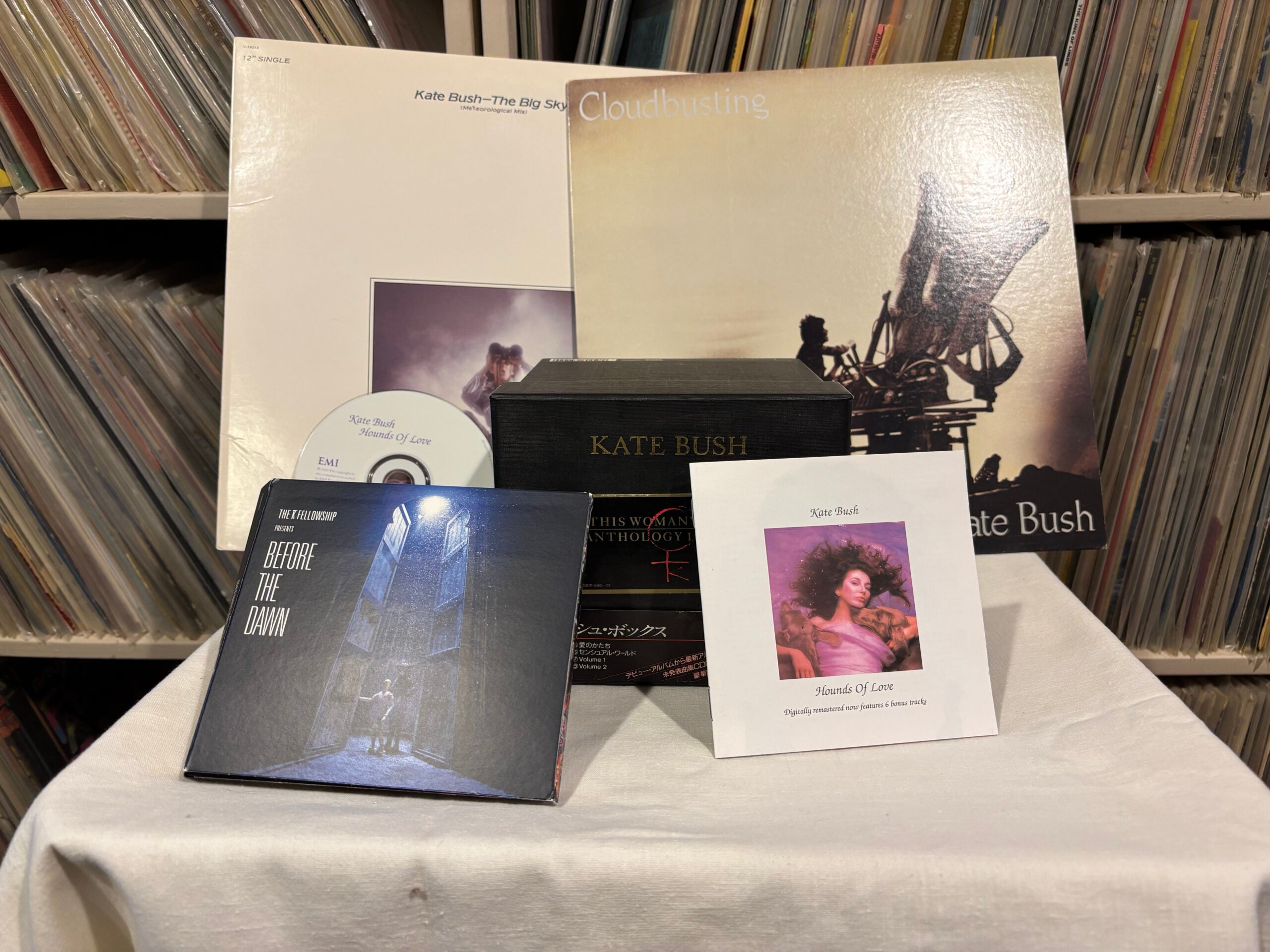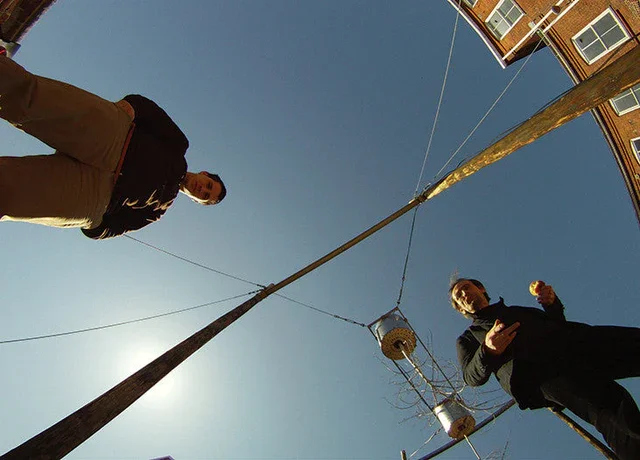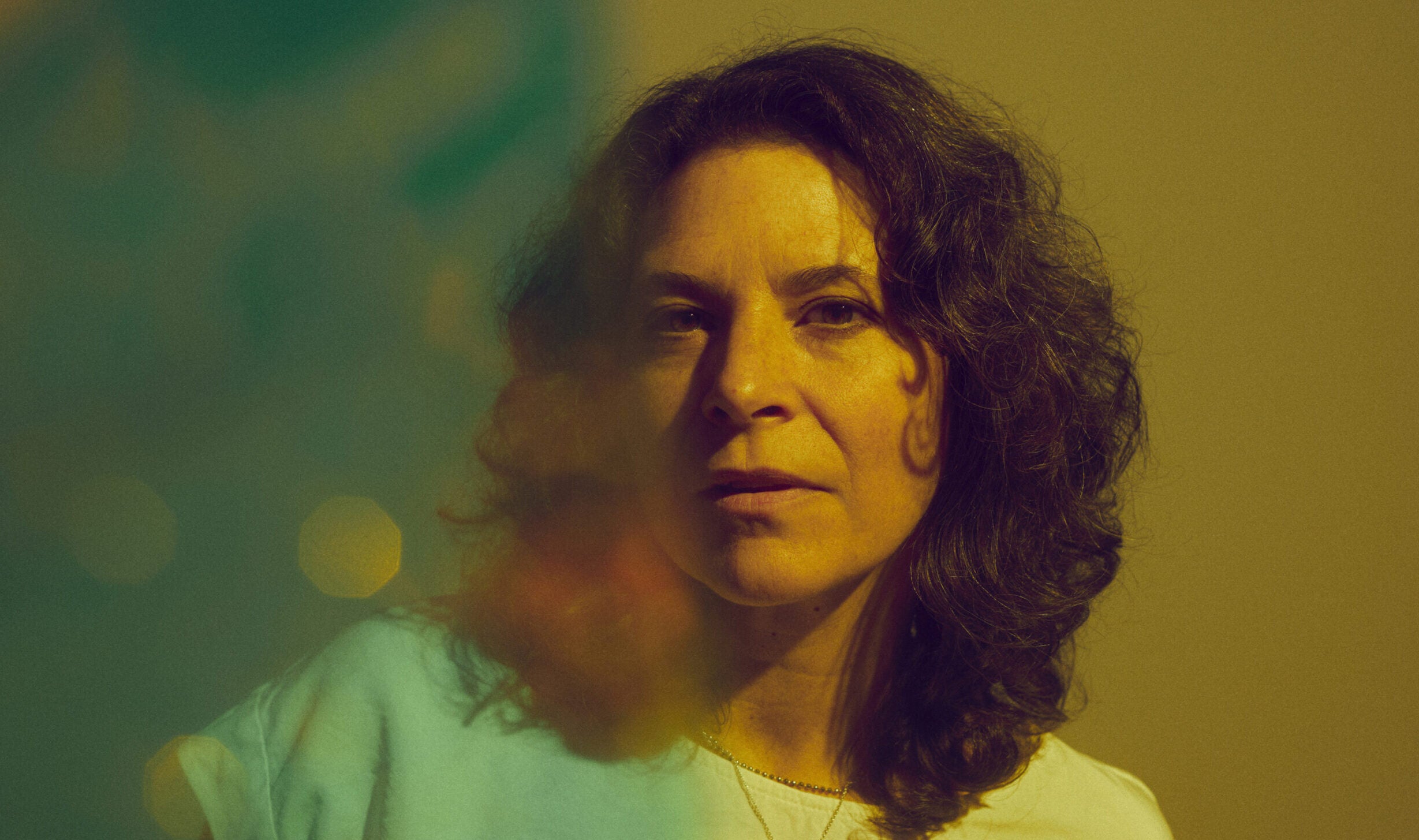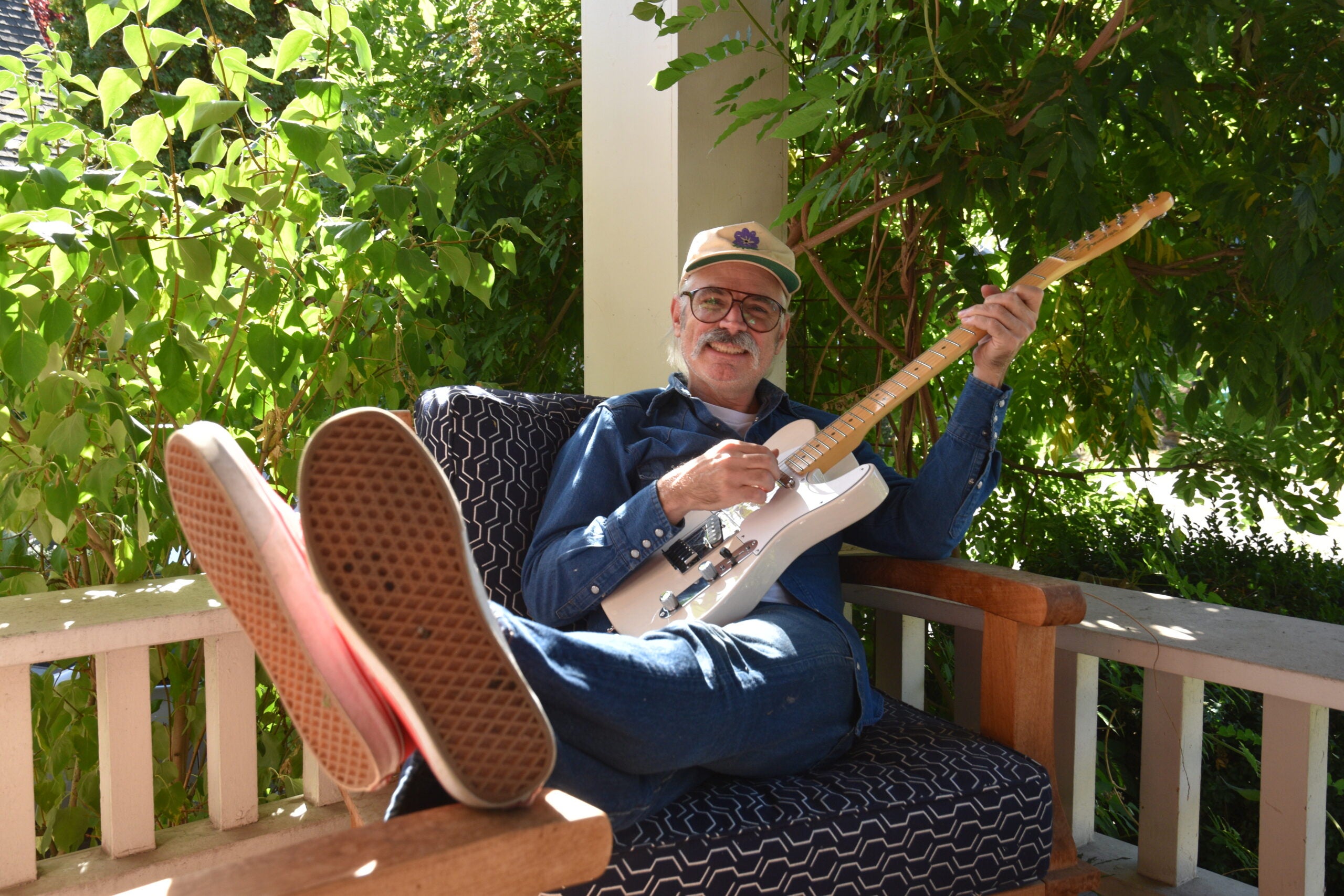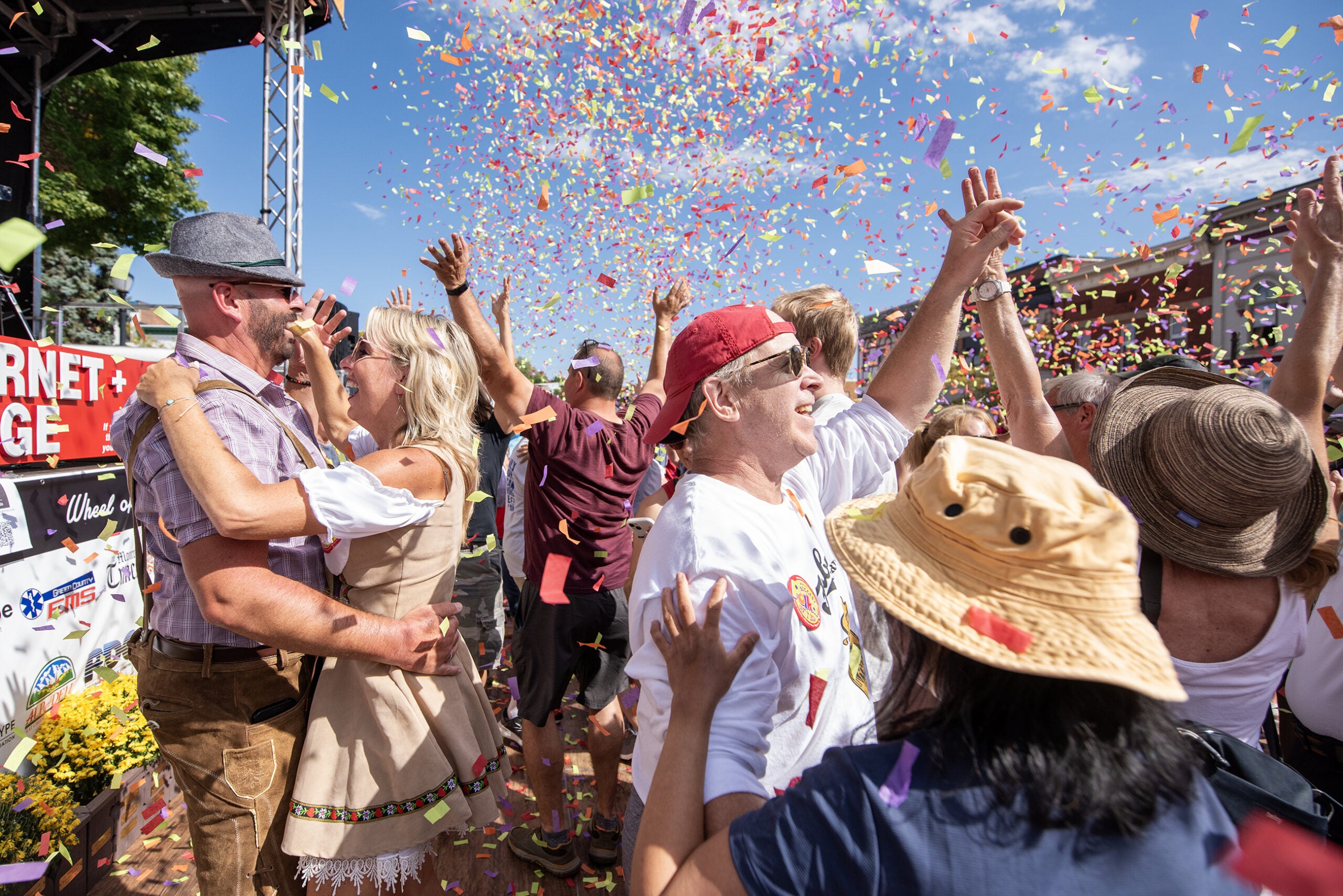When the COVID-19 pandemic undercut Stacy Harbaugh’s 2020 New Year’s Resolution to learn how to put on a music show at a community radio station in Madison, she set her sights on a different goal.
Instead of learning how to substitute for the music hosts at WORT-FM where she volunteers, she decided to learn how to become a DJ.
“I’ve always thought about becoming a DJ, but it seemed really kind of intimidating,” said Harbaugh, a writer for Unstuck Communications. She started to explore her hobby using a digital mixer and ripped all of her CDs onto that medium.
Stay informed on the latest news
Sign up for WPR’s email newsletter.
But that wasn’t satisfying her craving to work with vinyl, which she eventually switched to as her preferred format. Then it was time to decide on a genre. This Wisconsinite chose polka.
“I was thinking, ‘What could I do that maybe no one else is doing or there are very few people doing?’” she asked. “I’ve always loved polka, I’ve always loved going to festivals and hearing polka music.”
So far, Harbaugh has collected about a hundred polka records but said there are many more she wants to find. She focuses on recordings made in or near Wisconsin, for example those from independent record label Cuca Records based in Sauk City.
“I try to just focus on collecting mostly Dutchman-style polka,” she said. “It’s a very folksy kind of sound … And it sounds like another time.”
Harbaugh loves polka music, but there are some traits that make some records better than others. For example, she prefers the sound from bands that are smaller.
“If it’s got, you know, a tuba, a drum kit, a squeezebox, maybe a banjo … I know I’m going to love it,” she said.
She loves the “kitsch” kinds of records, too.
“I mean, if you’ve got a group of guys in what look like bowling jackets in front of a Winnebago, you know that’s going to be a good record,” she said.
Polka might, for some, be a sound that belongs to church festivals or weddings and celebrations from decades past. But Harbaugh said she wants to connect listeners of all generations to this music of the state.
“If I can help bridge that generational gap by bringing my turntables and these records to a neighborhood bar, the little hipster bars … I’m hoping to be able to inspire people to continue to love this Wisconsin sound,” she said.
Harbaugh said there were certainly barriers to learning how to DJ with polka music, but she said the COVID-19 crisis gave her the time to learn the trade without the added pressure of being recruited to play at events.
“It has just been this wonderful exercise in overcoming imposter syndrome — you know, that little voice in your head that says, ‘You’re not good enough, who do you think you are? You’re 44 years old and you want to be a DJ? Come on,’” she said. “It’s not been that at all. I’ve had this very clear vision of what it is that I want to do.”
Harbaugh said now that events are beginning to be scheduled again, she’s hoping to play at neighborhood bars or maybe even at breweries, for example ones that are launching new German lagers.
“I’m a little nervous because I have been just enjoying this music just by myself and following my bliss on what sounds really good to me,” she said. “But I think if it sounds good to me, other people will appreciate it, too.”
Wisconsin Public Radio, © Copyright 2025, Board of Regents of the University of Wisconsin System and Wisconsin Educational Communications Board.
